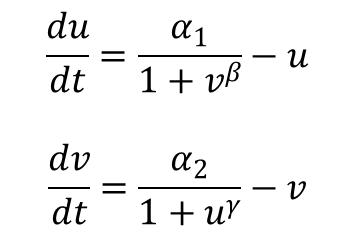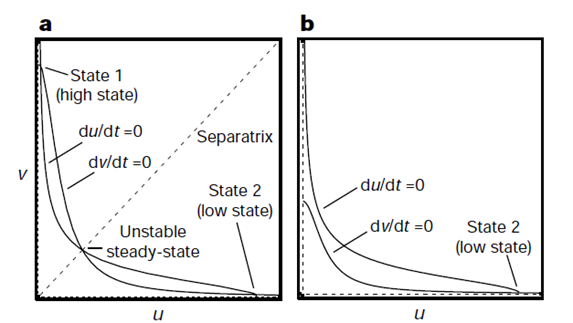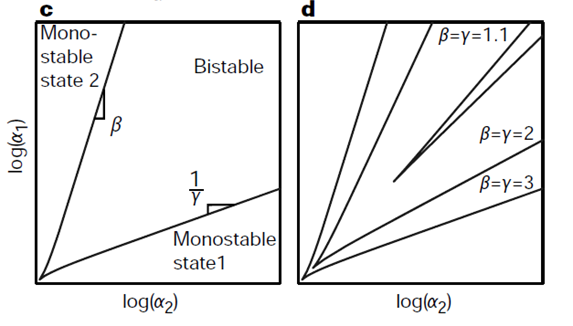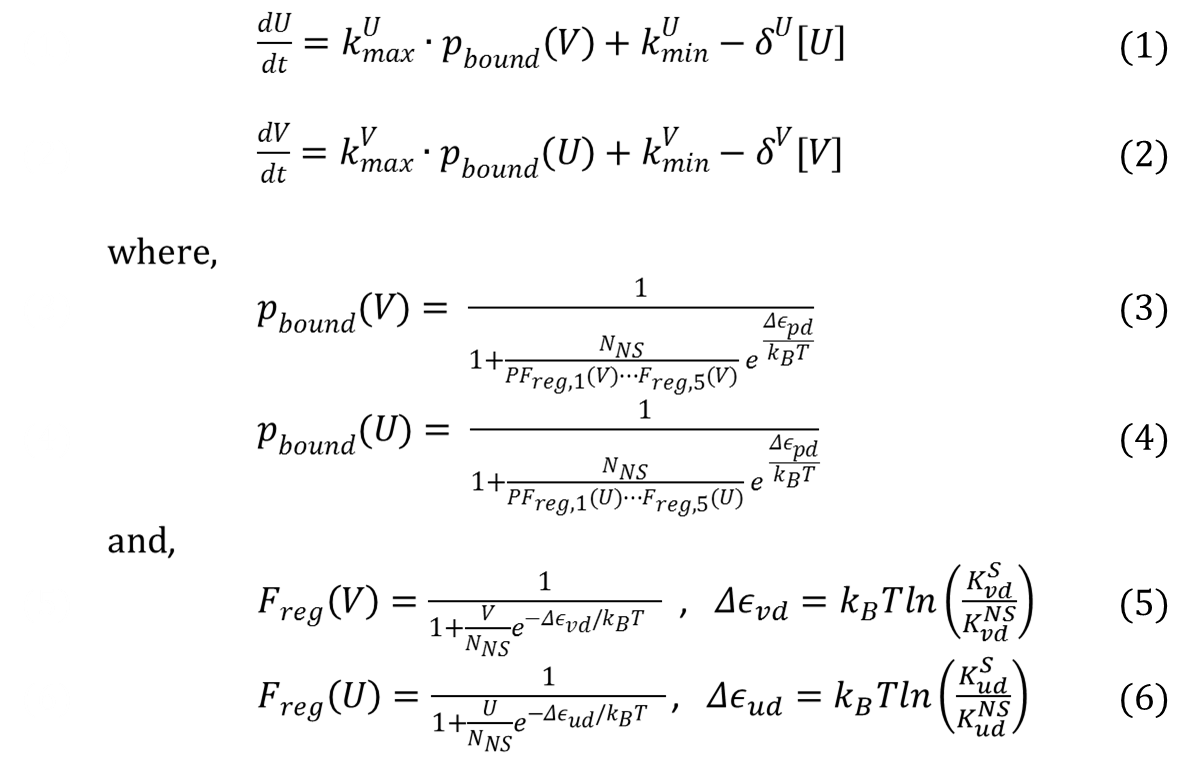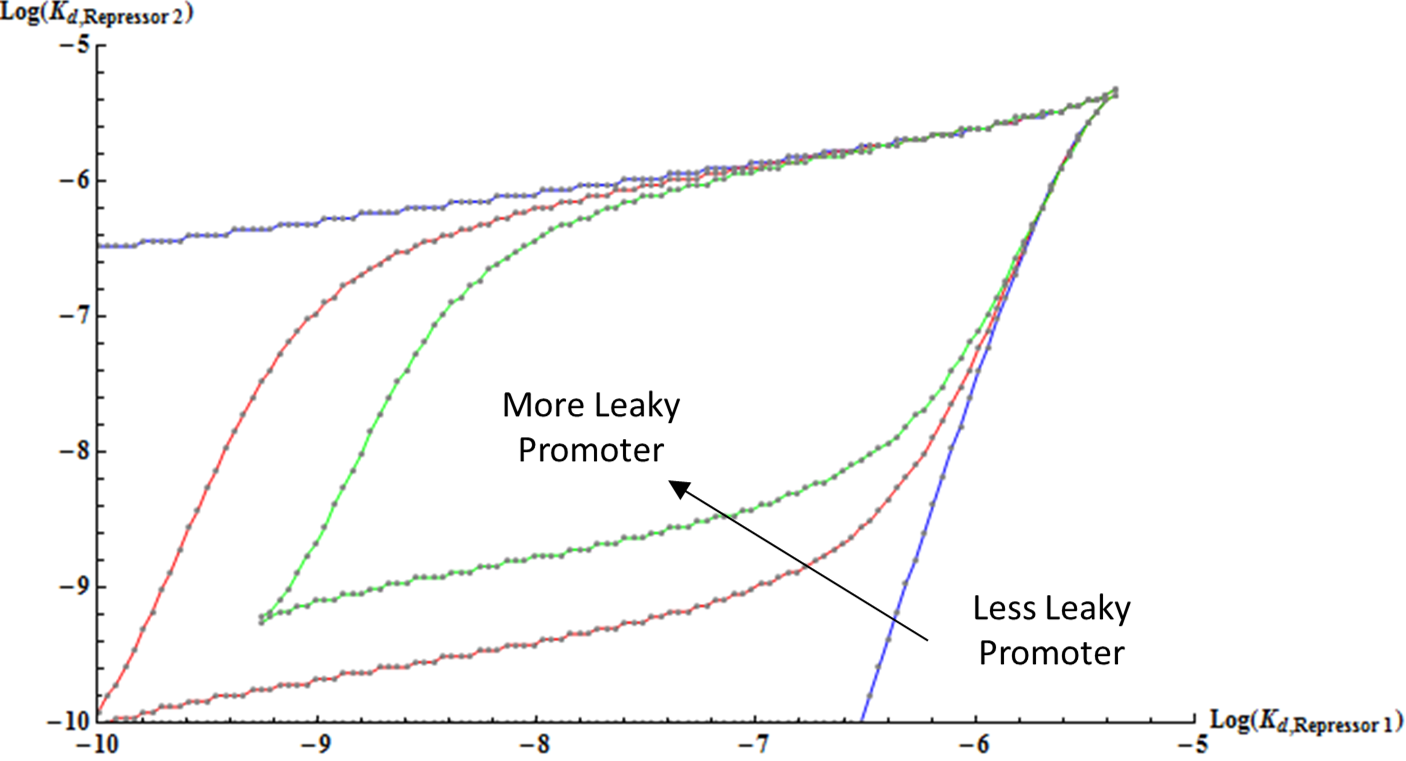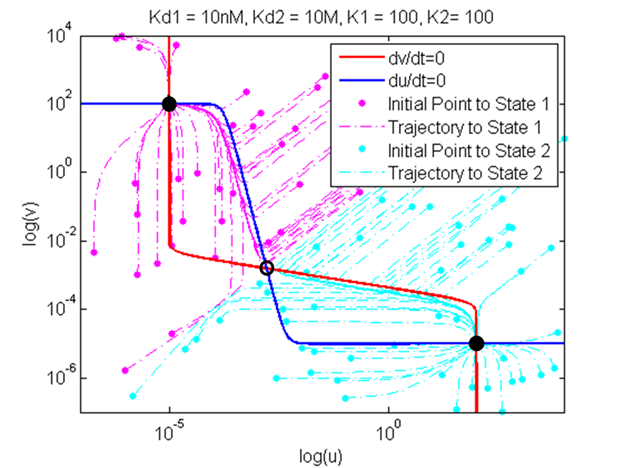Team:Duke/Modeling/3
From 2013.igem.org
Contents |
Mathematical Modeling of Bistable Toggle Switch
Kinetic Model of Bistable System
Following Gardner's Work...
intro to gardner's work
equation (Ref gardner paper)
explain bifurcation
figure (trajectory)
figure (bifurcation)
explain the effect of changing hill coeff on bifurcation region. explain nullcline
reproduce nullcline and trajectory (explain trajectory)
Development of Our Kinetic Model
moving on, we have developed another kinetic model using the results of the thermodynamic model. gardner = effect of hill coeff on bistability of a system (bifurcation region) new model = effect of various parameters on bistability (highlight and number Kd, pr_Str, basal rate.
as mentioned before, key assumption is is (du/dt , dv/dt = proportional to p_bound)
show equation
explain
show values for variables like degradation rate
Results from Our Kinetic Model
show graph
explain
show nullcline
confirm bistability of the system (thermodynamic model incorporated into kinetic model)
References
- Gardener, T. et al. Construction of a genetic toggle switch in Escherichia coli. Nature. 403, 339-342 (2000).
 "
"











